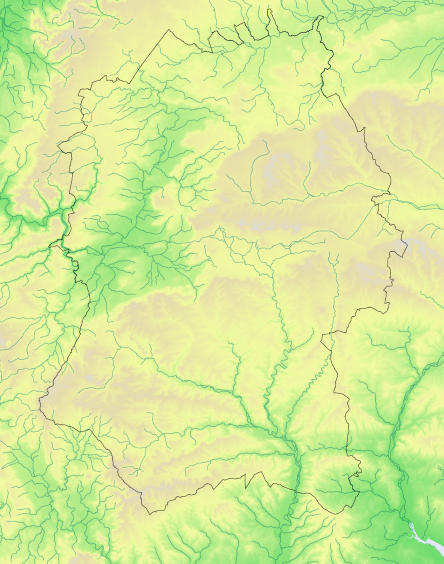Skylark Alauda arvensis
Winter distribution 2007–2012
Still locally common resident/passage/winter, but serious decline in Britain
Atlas species lists
- Breeding distribution 1995–2000
- Summer abundance 1995–2000
- Winter distribution 1995–2000
- Winter abundance 1995–2000
- Breeding distribution 2007–2012
- Summer abundance 2007–2012
- Winter distribution 2007–2012
- Winter abundance 2007–2012
- Breeding distribution change
- Summer abundance change
- Winter distribution change
- Winter abundance change
More Skylark maps
- Breeding distribution 1995–2000
- Summer abundance 1995–2000
- Winter distribution 1995–2000
- Winter abundance 1995–2000
- Breeding distribution 2007–2012
- Summer abundance 2007–2012
- Winter distribution 2007–2012
- Winter abundance 2007–2012
- Breeding distribution change
- Summer abundance change
- Winter distribution change
- Winter abundance change
Map explanation
This map shows the winter distribution of the species in Wiltshire as revealed by the shared fieldwork for Bird Atlas 2007-2011 (BTO 2013) and for Wiltshire Tetrad Atlas 2007-2012.
Key
Status
Nos tetrads

Present
667
73%
Sky Larks breed in open country from northwest Africa and western Europe, across Eurasia to Kamchatka and Japan, and the Pribilof Islands of Alaska. They have been introduced in New Zealand, Australia, Hawaii and western Canada. Only the most northerly populations are migratory.
In Great Britain, for many centuries Sky Larks were trapped in great numbers for food. Despite this, at the end of the 19th century they were widespread and common breeders throughout England, Scotland and Wales. Agricultural intensification and other changes in practice, such as the move to autumn sowing of cereals, led to steady population decline throughout the 20th century – Bird Atlas 2007-2011 reported a 58% decline in population just between1970 and 2010, though this was not reflected in significant changes in distribution: summer distribution declined by only 1% between 1968-72 Breeding Atlas and Bird Atlas 2007-2011 while winter distribution actually increased by 8% between 1981-84 Winter Atlas and Bird Atlas 2007-2011.
Birds of Wiltshire recorded Sky Larks present in 809 tetrads with breeding in 602 of them. WTA2 recorded them present in only 5% fewer tetrads, though there was a 26% reduction in the number of tetrads where breeding was recorded.
References
The following references are used throughout these species accounts, in the abbreviated form given in quotation marks:
“1968-72 Breeding Atlas” – Sharrack, J.T.R. 1976: The Atlas of Breeding Birds in Britain and Ireland. T. & A. Poyser
“1981-84 Winter Atlas” – Lack, P.C. 1986: The Atlas of Wintering Birds in Britain and Ireland. T. & A. Poyser
“1988-91 Breeding Atlas” – Gibbons, D.W., Reid, J.B. & Chapman, R.A. 1993: The New Atlas of Breeding Birds in Britain and Ireland 1988-91. T. & A. Poyser
“Birds of Wiltshire” – Ferguson-Lees, I.J. et al. 2007 : Birds of Wiltshire, published by the tetrad atlas group of the Wiltshire Ornithological Society after mapping fieldwork 1995-2000. Wiltshire Ornithological Society.
“Bird Atlas 2007-2011” – Balmer, D.E., Gillings, S., Caffrey, B.J., Swann, R.L., Downie, I.S. and Fuller, R.J. 2013: Bird Atlas 2007-2011: the Breeding and Wintering Birds of Britain and Ireland
“WTA2” – ("Wiltshire Tetrad Atlas 2 ") the present electronic publication, bringing together the Wiltshire data from “Birds of Wiltshire” and “Bird Atlas 2007-11”, together with data from further fieldwork carried out in 2011 and 2012.
"Hobby" - the annual bird report of the Wiltshire Ornithological Society.

